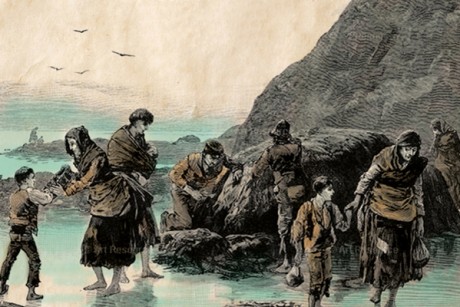
By Joan Walsh
But I kept coming back to U.S. politics anyway. Hauntingly, Kelly repeats the phrase that drove British famine relief (or lack of it): they were so determined to end Irish “dependence on government” that they stalled or blocked provision of food, public works projects and other proposals that might have kept more Irish alive and fed.
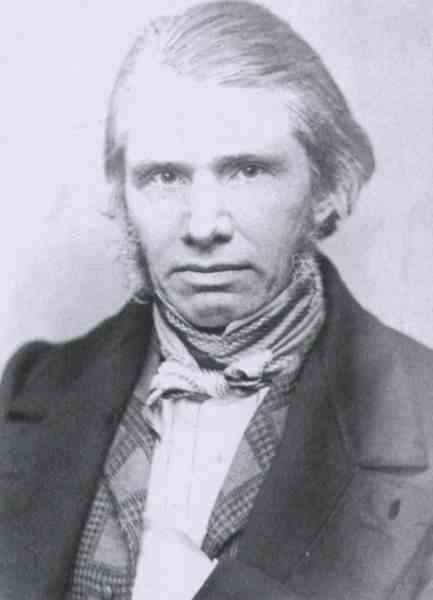
Trevelyan 1848
In fact, the day after finishing Kelly’s book, I found Salon’s Michael Lind writing about the Heritage Foundation brief ,“The Index of Dependence on Government.” It could have been the title of a report by famine villain Charles Trevelyan, the British Treasury assistant secretary whose anti-Irish moralism thwarted relief, but of course it was written by well-paid conservative Beltway think tankers.
I don’t believe in appropriating epochal tragedies and singular cruelties for modern political use. Genocide, slavery, famine, the Holocaust; rape, incest, lynching, those terms mean something specific. A recession, or even a depression, can’t be equated with famine, let alone genocide. Nor can rampant child poverty: we fend off starvation pretty successfully with food stamps, government help and charity today.
“47 percent, the people who see themselves as ‘victims’ and are dependent upon government.”
“is not to worry about those people. I’ll never convince them they should take personal responsibility and care for their lives.”
Of course, now conservatives are very worried about “those people:” Supposedly, they re-elected President Obama.
“a social free-fire zone that drives dependency and poverty.”
“want stuff,”
”big spending on government programs,”
“they’ve rejected robust capitalism and self reliance.”
“to encourage Americans to be dependent on the government.”
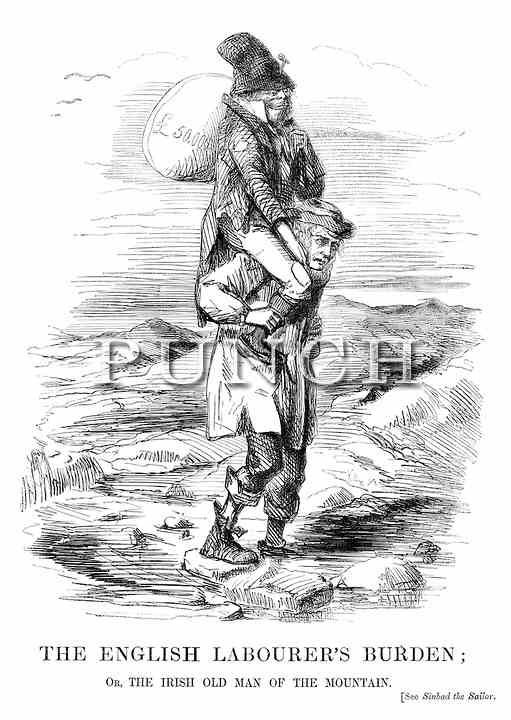
At least once a generation, we have to fight the idea that the poor and struggling are to blame for their own hardship.
But it’s harder to fight it if we can’t see it.
I find myself particularly puzzled by my people, the Irish Catholics in that group.
—————————–
Book review. The Graves Are Walking by John Kelly.
Narrative history is a tricky business, fitting all those recalcitrant facts into the form of communication human beings love best.
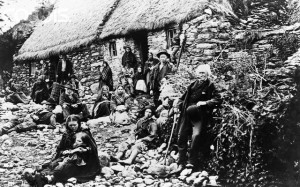
So what sort of story is the great Irish potato famine of the late 1840s, a catastrophe that killed a million people, drove over a million more from their homeland and permanently transformed the way the Irish people view themselves?
John Kelly, author of the new book “The Graves Are Walking: The Great Famine and the Saga of the Irish People,” does not think the famine constituted genocide.
Citing an Irish nationalist author who accused Britain’s Assistant Treasury Secretary Charles Trevelyan of infecting Irish children with a special “typhus poison” in a government laboratory, he writes that the man “should have stuck to the truth. It was incriminating enough.”
Kelly, whose previous book, “The Great Mortality,” offered an account of the plagues that devastated Europe in the Middle Ages, recounts the progress of the famine chronologically.
The colonial nature of the Irish economy exacerbated the food shortage. Most of the landowners were Anglo-Irish, and many of these were absentee landlords who really identified as English. (The Duke of Wellington, born in Dublin, reputedly responded to someone who called him Irish by saying, “Being born in a stable does not make one a horse.”)
They visited their Irish properties infrequently (or never) and regarded them solely as a source of funding for a lifestyle that, as Kelly puts it, showed “a preference for conspicuous consumption over agricultural investment.” Whatever the faults of England’s own class system, the landed gentry were seen to have a paternalistic obligation to care for their tenants, especially in times of need.
The political, economic and humanitarian failure of England’s response to the famine amounted to — no joke intended — a game of hot potato between the British government and Irish landowners over who was responsible for aiding the poor.
Kelly, like most historians, places the brunt of the responsibility for this fiasco on the shoulders of Trevelyan.
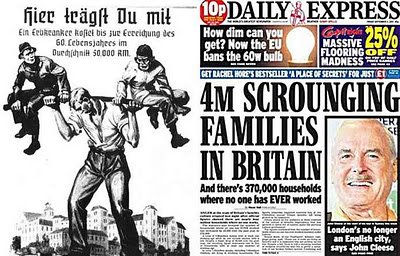 As the policy leader of the famine response program, Trevelyan was not a Mengele-style mad scientist but a civil servant known for his “unbending moral rectitude and personal intensity.”
As the policy leader of the famine response program, Trevelyan was not a Mengele-style mad scientist but a civil servant known for his “unbending moral rectitude and personal intensity.” The Irish economy was backward and precarious, but for Trevelyan the failure of the potato crop presented not a life-or-death crisis but an opportunity to forcibly modernize it.
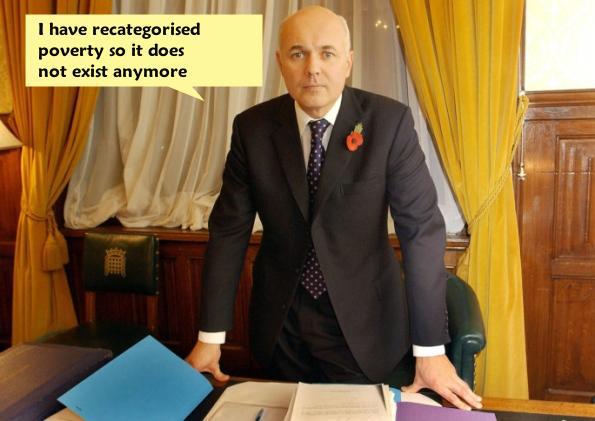 These strategies amount to the 19th-century version of what Naomi Klein has dubbed the “Shock Doctrine”: an attempt to force economic reforms on a population reeling in the aftermath of a disaster.
These strategies amount to the 19th-century version of what Naomi Klein has dubbed the “Shock Doctrine”: an attempt to force economic reforms on a population reeling in the aftermath of a disaster.
Kelly intersperses the nitty gritty of the shifting Irish economic situation with horrific glimpses of its human toll: streets jammed with gaunt, half-naked wraiths who had sold their clothes for food, families gathered mutely in miserable cottages to die, unburied corpses by the roadside, entire hamlets razed by landlords seeking to evict “dead weight” tenants they’d otherwise have to help.
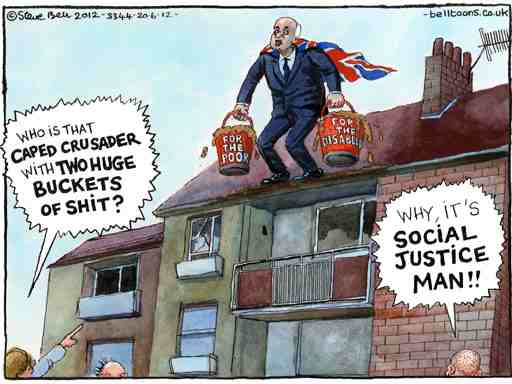 Recognizing that the British handling of the famine was “parsimonious, short-sighted, grotesquely twisted by religion and ideology” rather than deliberately genocidal is important because while powerful, paranoid, racist madmen like Hitler are relatively rare, our own time is replete with men like Trevelyan.
Recognizing that the British handling of the famine was “parsimonious, short-sighted, grotesquely twisted by religion and ideology” rather than deliberately genocidal is important because while powerful, paranoid, racist madmen like Hitler are relatively rare, our own time is replete with men like Trevelyan.
Laura Miller.
I’m having trouble understanding why some reviewers are so outraged that the great famine is not branded “genocide” in this book and believe that Kelly goes too easy on the British.
To my mind, Kelly puts the blame squarely where it belongs–on the British–but shows in chilling detail how abstract moralism/social philosophy can have devastating real-world consequences.
It is horrifying to see so many lives sacrificed to social “principle” and to the British determination to shed responsibility for Irish serfs.
As this book makes clear, in the British colonialist mind, the Irish were subhuman pawns, simply collateral damage.
Who cared how many died if Britain’s political/economic aims were fulfilled?
This attitude is just as frightening as if the British had targeted the Irish as “evil” and set about killing as many as possible, as perpetrators of genocide do.
In fact, it’s all the more heinous for being so cold-blooded.

Iain Duncan Smith doesn’t care that his reforms killed Brian McArdle. He’s proud of himself and Brian’s just ‘collateral damage’ in his ‘war on welfare’:
You can read all about Brian McArdle R.I.P. at
https://blacktrianglecampaign.org/2012/11/01/atos-benefits-bullies-killed-my-sick-dad-says-devastated-kieran-mcardle-13/ ;
https://blacktrianglecampaign.org/2012/11/02/teens-letter-about-cruel-effects-of-atos-hand-delivered-by-record-to-iain-duncan-smiths-whitehall-office/ ;
https://blacktrianglecampaign.org/2012/11/03/iain-duncan-smith-to-write-to-distraught-teenager-who-blames-atos-for-fathers-death/
Here is the clip of IDS BRAGGING ON BBC QUESTION TIME in response to being hauled up over Brian’s death by Owen Jones. SHAMEFULLY the idiotic and ignorant SHEEP, fed on a diet of govt. & tabloid lies and propaganda to the point where they can no longer think for themselves or distinguish truth from fiction bleat and clap in approval.
‘Iain Duncan Smith Losing His Temper With Owen Jones’
http://www.youtube.com/watch?v=ec3wJlHtVMM&feature=youtu.be
When will the nation awake and arise???
How many more must DIE???
Self-justifying indifference to death and suffering is frankly scarier than outright malice.
More chilling still, as Kelly spelled out explicitly in a Daily Beast piece, the British mindset has striking parallels in American politics today.
This is a gripping, well-told, and painstakingly researched work of history, a parable that can’t help but resonate with any thinking observer of our fragmented world.
See also:
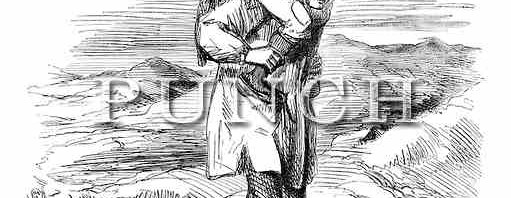


3 Responses
The Irish Genocide by Starvation was a Cold Blooded Act of Murder and Murder by
Poverty is Still Murder
Charles Trevelyan was a Creep a Monster and a Murderer and like other Genocidial
Maniacs should be Held in Disgust like Adolf Hitler Joseph Stalin and Chairman Mao
as Well as Pol Pot
There is No Justification for Health and Welfare Wrecking because those who are
Poor and in Poor Health have a Necessity of Requirement of Proper and Adequate
Help and Provision
We Must Not go Back to the Horrible Days of Dickensian Time Destitution and Human
Suffering whilst ” Queen ” Victoria had her Palaces and Get Aways like Osborne House
and Balmoral
This Present ” Secretary of State For Work and Pensions ” Really Needs to Resign
or be Sacked his Attitude is Ignorant and Abysmal at the Very Best Not to mention
Dammed Well Arrogant
As For Silly Sheep Fed upon Tabloid Propaganda they Need to Bloody Wake Up
and Open their Eyes to Human Suffering otherwise they are Not Fit to be Called
Human Pure and Simple
It is Not For Nothing that I can See that the Oblivion Box of TV and it’s Propaganda
Diet of Programmes is the Idiot Box
We Need to Have a Line in the Sand Drawn Not the Continual Heads in the Sand
of Far too Many
Shame upon the ” Conservatives ” Really Destructives and Shame upon those Ignorant
Enough to Vot e For Them
Make the Rich Pay they are the Hotshots with All the Money if Not Always Morality
Read the truth here : http://www.irishholocaust.org/
IS NOT IDS A CHRISTIAN,oh sorry i forgot creatin,oh by the way he has a degree from italy he never when there for more than 2 days..mr ids degree in crimes most vile
ids-dcmv crime most vile .. jeff ..